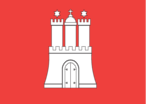Dear friends,
During these times, I am often asked for my opinion on the recent developments in the Ukraine conflict. Some are hoping for impartial information from someone who regularly monitors the Russian media, while others are primarily looking for confirmation of their traditionally anti-Russian views. Sometimes these discussions are unusually lively, which has prompted me to give a brief summary of my views at this point.
This is neither a justification nor a political appeal, but the point of view of a former adviser who is professionally involved in relations between the European Union and the countries of the former USSR and who also worked in Ukraine on the legal reforms aimed at approximating the legal system to the legal standards of the European Union for democracy and the market economy. At this point I do not claim to be scientifically complete. I am happy about constructive hints.
First of all, it should be noted that the Ukraine, like many other successor states of the USSR, had already concluded a Partnership and Cooperation Agreement with the European Union and its member states in 1994 and had thus committed itself not least to moving towards democracy, a market economy and general European values. In the course of preparing a trade agreement between Ukraine and Russia, large sections of the population staged peaceful protests in 2013. These demonstrations were increasingly infiltrated by extreme right-wing forces (right sector), which turned the initially peaceful demonstrations into a situation resembling a civil war.
In this heated political climate, the Ukrainian parliament in 2014 carried out impeachment proceedings over the incumbent president in a kind of “cloak and dagger operation”. However, the requirements for removal from office were not met. Despite this, parliament formed a new, non-democratically legitimized interim government. Exile remained for the legitimate president. This practice will be seen as electoral fraud, depriving the president’s voters of the value of their votes. It can be stated that at this point the Ukraine left the European path, the path of democracy. This was primarily to the detriment of the typically historically and culturally Russian-oriented Russian-speaking population in Crimea and eastern Ukraine. These areas seceded, pointing to the lack of legitimacy of the government of Ukraine and fear of attacks by the strengthened “right-wing sector”, which consists to a large extent of nationalists and neo-fascists. In view of the already weak historical and cultural ties with Ukraine, it seems unreasonable for these areas and their inhabitants to belong further to Ukraine, this applies in particular to Crimea, especially given legal protection in view of the unstable Ukrainian judiciary and the EU bureaucracy, which is often dominated by particular political interests seemed unrealistic at the time.
This finding was reinforced by ambitions to revoke the status of the Russian language as an official language and thus to legally and politically degrade the Russian-speaking population, as well as by the erection of monuments to so-called national heroes who dedicated themselves to the genocide of Jews and Poles and the collaboration with the murderers of the Nazi regime during the time of World War II and finally a ruthless military operation from 2014 – 2020 that cost the lives of more than 14,000 people including over 4,000 civilians. It is a well-known fact that monuments are values and a program of action. Concerns about another genocide are palpable.
It is obvious that this war, which at first received little attention in Europe – although it is taking place in the middle of Europe – must be ended for humanitarian reasons. Agreements reached by the conflicting parties in the “Minsk process” aimed at de-escalating the conflict were not implemented by the parties. Also hoping to gain Western support, in the best case NATO membership, to restore lost territorial integrity, Ukraine launched a massive rearmament program.
It is well known that the Russian government rightly has serious reservations about Ukraine’s integration into NATO. Promises made by Germany and others in the course of the two-plus-four contract negotiations for German reunification – irrelevant, in writing or by word of mouth – were not kept. The security interests of NATO’s neighbors apparently only played a subordinate role in the various waves of NATO expansion, at least as far as Russia was concerned. A military action by the Russian army therefore appears as the only realistic approach to ending the war in Ukraine and its further, possibly global, escalation.
I hope that both Germany and the European Union will take all conceivable measures that can help limit the number of war victims and persuade the conflicting parties to initiate a substantial negotiation process. The German arms deliveries to Ukraine are tantamount to a declaration of war. I expressly distance myself in this regard.
Sincerely
Your
Maik Masbaum
Hamburg, 10.03.2022
